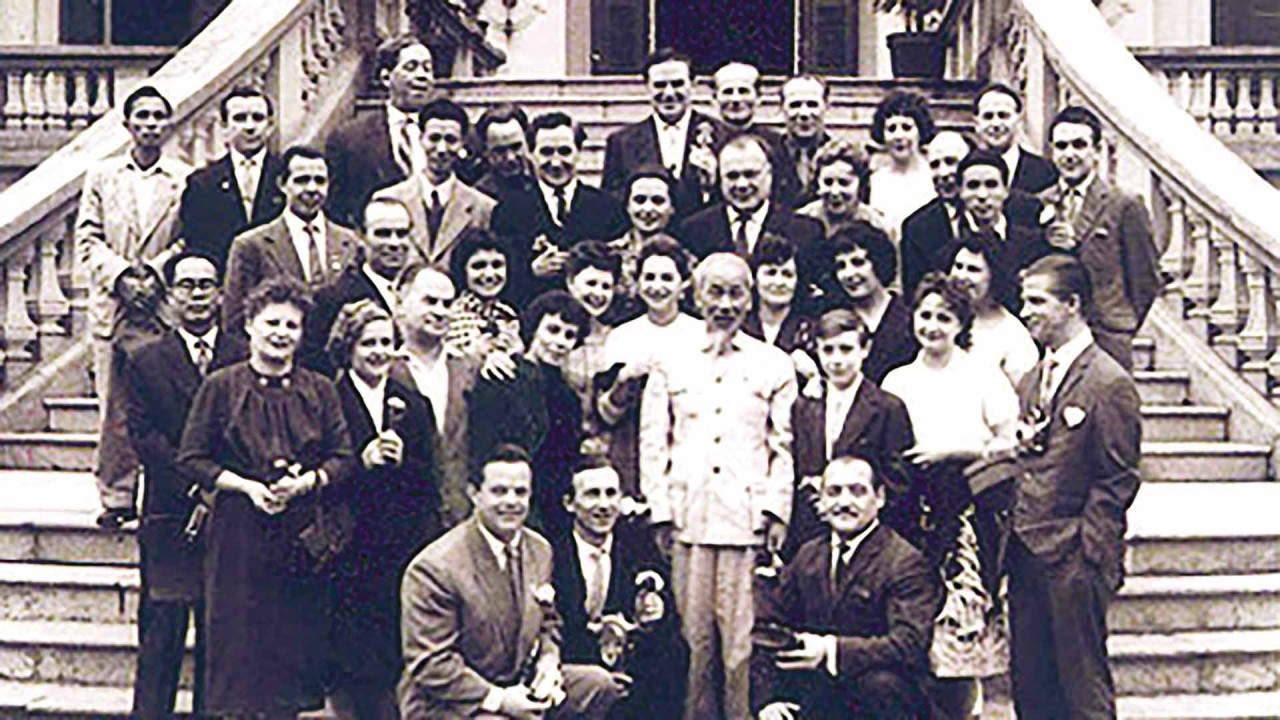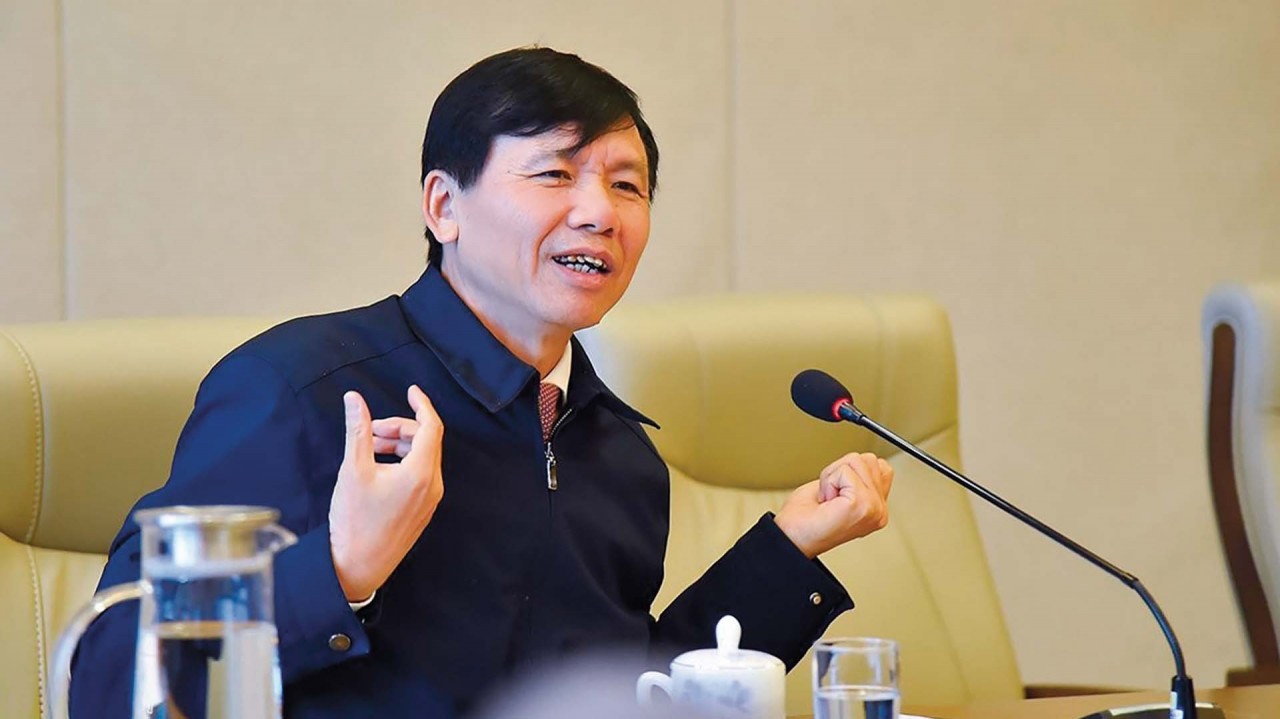
Heart-to-heart diplomacy: Those who understand it will understand it better, those who appreciate it will appreciate it more
Latest
 |
| President Ho Chi Minh and Vietnam's international friends. |
In your perspective, how might the heart-to-heart diplomacy of Hồ Chí Minh be delineated with its connotations?
Heart-to-heart diplomacy is about winning the heart of your partner. The practice of heart-to-heart diplomacy hinges on factors such as historical context, cultural elements, foreign policy, and the proficiency of the diplomatic personnel. In the realm of international relations, every nation employs heart-to-heart diplomacy, albeit with unique approaches shaped by individual distinctions. Hồ Chí Minh’s distinctive of dedicated diplomacy is characterized by his fervent promotion of Vietnam’s illustrious historical narrative, the nation’s culture underscored by principles of peace, tolerance, altruism, and a commitment to a harmonious foreign policy. This approach aligns with Uncle Hồ’s stature as a Cultural Celebrity, embodying both knowledge and a charismatic persona.
Ambassador, could you expound upon the significance of possessing qualities such as compassion, comprehension, trust, and influential capabilities in the context of diplomacy, encompassing both periods of conflict and peace?
To win the heart, you must first win the mind. People will only give you their hearts if they see that you can understand them and that you are worthy of their trust.
Hence, in addition to sharing and empathizing, one must possess the capability to persuade. In the realm of foreign affairs, Uncle Hồ consistently made clear distinctions not only between the citizenry and the government but also within the same country, discerning between belligerent factions and those inclined towards peace. He consistently identified the positive and negative aspects among the people and within various groups, aiming to inspire positive sentiments and goodwill in their hearts.
Numerous nations recognize Vietnam as a peace-loving nation, consistently conveying the image of a resilient S-shaped land enduring the tempests of conflict, always imbued with a “sincere” commitment to peace and dedicated efforts for its attainment. Ambassador, can it be affirmed that “Heart-to-heart diplomacy” has achieved widespread success?
The illustrious history of our nation serves as a valuable asset in our pursuit of heart-to-heart diplomacy. Globally, particularly among the populations of African and Latin American nations, the profound impact of the Vietnamese people’s historical struggle against foreign invaders resonates. The admiration and gratitude expressed by people worldwide, stemming from Vietnam’s resistance wars against France and America, endure to this day.
Due to the immense sacrifice, as eloquently captured by the words “Not only for our thirty million people, but also for three thousand million people in the world” (Tố Hữu Poetry), the preservation and dissemination of this invaluable legacy necessitate Hồ Chí Minh’s committed heart-to-heart diplomacy. When individuals evoke genuine sentiments, a profound remembrance ensues. Humility and willingness, when perceived by others, command respect for the history of the people.
 |
| Former Deputy Minister of Foreign Affairs, Ambassador Dang Dinh Quy. |
In what manner have successive generations of Vietnamese diplomats implemented and championed “Hồ Chí Minh’s heart-to-heart diplomacy”?
The senior generations have had the privilege of serving alongside Uncle Hồ in foreign affairs, learning from and emulating his approach, advancing “Hồ Chí Minh’s heart-to-heart diplomacy.” They cultivated alliances, engaged with adversaries, and endeavored to garner respect even from those with differing views. The succeeding generations have similarly endeavored to perpetuate this tradition within the evolving landscape of the country’s innovation and its increasing integration into the global and regional spheres.
In your role as the “captain” of the Vietnamese Delegation to the UN during a pivotal period when Vietnam assumed a crucial role as a non-permanent member of the UN Security Council for the 2020-2021 term, you had underscored two paramount elements for success. When discussing these key factors, you highlighted that diligent diplomacy was foremost. How did this diplomatic commitment serve as a guiding “lighthouse” for our collective journey, illuminating both our “ship” and for you as an Ambassador?
Upon assuming the role of a non-permanent member of the United Nations Security Council, it is crucial to bear in mind that our primary objective transcends the number of Resolutions and Presidential Declarations we initiate. Instead, our paramount goal is to engender positive sentiments toward Vietnam among the member countries of the United Nations. Success, after two years, will be measured by the heightened appreciation from friendly nations and increased respect from major powers toward Vietnam, and conversely, the lack thereof would signify a different outcome.
Consequently, we have undertaken a unique initiative unmatched by any other nation: extending invitations to countries under the “monitoring” purview of the Security Council to articulate their concerns and challenges. Prior to Security Council deliberations concerning any specific country, we engage in consultations with the concerned nations. Subsequent to these discussions, we provide updates and exchange information with them. Upon the conclusion of our term, Ambassadors from various countries expressed gratitude to Vietnam for consistently being a nation that “listens and comprehends their perspectives”.
In conclusion, Mr. Ambassador, within a world characterized by ongoing transformations and escalating conflicts, what significance will heart-to-heart diplomacy hold for Vietnam’s international conduct?
Regardless of the global circumstances, the necessity and importance of heart-to-heart diplomacy persists.
In the realm of international relations, nations collaborate or engage in conflict guided by the notion of interests and the means to actualize those interests. Heart-to-heart diplomacy serves as a method to shape their perspectives and approaches.
At present, our favorable circumstance lies in our ability to uphold peace and evade blockades and embargoes, even amid the chaos and instability prevailing globally. However, as the memories of past conflicts fade, the historical capital for conducting heart-to-heart diplomacy diminishes. To counter this, we must generate new capital by industrializing and modernizing the nation, thereby contributing both ideas and material resources to collective endeavors on a regional and global scale.













